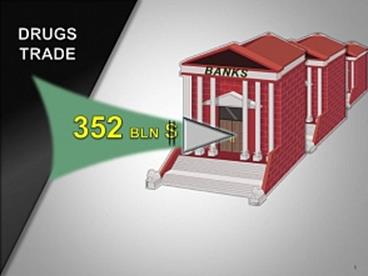
According to the former Chairman of the National Bank of Kazakhstan Grigory Marchenko, one of the main risks for the global economy is the preservation of the current financial system in which banks literally parasitic on the real sector and prevent the reforms.
In a world of accumulating risks associated with the disproportionate role of the banks and the financial sector. Formally taking refuge in the role of the creditors of the real sector, banks actually continue to play the game in global markets currencies and assets to their advantage. On the strong resistance to legislative changes made by the banking lobby in the world is the situation when the new financial crisis will be a need once again to save the banks at the expense of the population.
About it Grigory Marchenko said in an exclusive interview with economic reporter Alex Borovskomu in the “Course day” on the air of TV channel “Russia-24”:
Question: last week were meetings of a number of Central banks: the fed and the Bank of Russia. Last week the European Central Bank had their say, launching new tools designed to stimulate the European economy. In your opinion, is there any trend to where it’s going? Refers to the movement of Central banks to negative rates and the inability to raise rates from the fed, as they had not promised this.
Grigory Marchenko: In my opinion, the ECB is partly a surprise. But the fact that the fed has not increased the rates, was also a surprise.
I would remind you that the statements of the fed are considered very carefully, look at all the statements and specific statements. In fact, before they said they will raise interest rates each quarter during 2016. But they didn’t.
Overall, I would note that in the world remains the situation that emerged after the crisis of 2008. And no solutions to the problems that led to the 2008 crisis, have not yet found. Still all the work trying to make the Central banks. It is partly so, partly not. I would note that the former head of the Bank of England, Mervyn king, recently stated plainly: if we do not return to an examination of the situation that led to the crisis of 2008 and do not take appropriate measures, this situation will repeat.
In the last few years, many began to realize that a second crisis is inevitable. It’s a matter of time. The fact that no structural problem is still not resolved. The Central Bank has printed a huge amount of money and gave it to the banks, more than 7 trillion dollars, 4 trillion dollars in the United States. A lot of money. On the one hand, what is good, it has not led to inflation in developed countries. But on the other hand, in the real sector of the economy this money is not included. Why? Because the architecture of the global financial system is flawed and wrong.
We see a huge volume of daily transactions on foreign exchange markets. But in the interests of the real economy – less than 2%. If you look at the balance sheets of British banks, their assets in loans to the real sector of 3%. And all the rest is trading, trading between banks and other financial institutions. If you remember the Marxist classification – have basis and is an add-on. Basis – this is the real economy which must service the add-in, the real sector. The opposite happened. This is a very large bias. In developed countries now it so happened that the banking sector plays with the real economy as his toy, because he’s so much more. This is a classic example of the so-called privatization of profits and nationalization of losses. That is, when every ten years there comes a crisis is immediately necessary to save the banks. And whom we, therefore, saving? 97% of the financial sector work for yourself and pay yourself in good years large bonuses. There are two blocks: the deposits that need to be protected and is a payment system which need to be protected. Basically, in the USA there is an old law glass – stegall. There is the Volcker rule. There are the recommendations of the Commission of Vickers in the UK this crisis. All speak about the same thing: we need to separate Deposit banks and investment banks. But this is not happening.
In the USA officially registered lobbyists for the financial sector is 2 thousand people. In Brussels – 1250. And in the U.S. are still many unregistered lobbyists. And what’s going on? Demonstrations, the same Occupy Wall Street (“Occupy wall Street”), people swear, people feel that everything is wrong and that the system must be changed. But in democratic societies, changes occur through changes in the laws. And when it comes to changing laws, several thousand of the rich and well-educated well-paid financial sector lobbyists to prevent it. It happens and we in Kazakhstan and in Russia and in other countries there have been examples where the banking lobby has thwarted the adoption of laws, which were necessary for the development of the same financial system or to protect the rights of consumers.
Therefore, one of the main tasks, which, actually, haven’t even begun to be addressed is reform of the financial sector, the allocation and protection of the payment system and Bank deposits. Either through the development of the postal savings system, or through specialized Deposit banks. And commercial banks, if they do not work with deposits and if they will not be the main part of the payment system – they can do trading, to speculate, to play with derivatives and so on. But, if with them something happens- the state must save them and help out.
Banks realize if they lose the role of the creditors of the real sector, which in fact should be their primary, but now is only a small part of all their operations, they will lose their protection by the state, that allows them with impunity to manipulate the assets. That needs to change. Despite all the recommendations, and in the U.S. and in the Euro area and the UK, nothing has actually changed. That is, at the global level, we, unfortunately, nothing good should not wait. Central banks and will be giving away money. The money and will not get in the real sector, because commercial banks and the financial sector will continue to solve our problems and to deal with all these derivatives and speculation in order to improve their balance sheets. And, sooner or later, there will be a crisis that would be worse than in 2008. It is understood by many. Therefore, in recent year there appeared the recommendation that the composition of a diversified portfolio should include agricultural land, which had never been. Because a situation may arise when Central banks printed paper money will be worthless. In Switzerland, banks have begun to offer their clients the leaves of gold in A4 format, which are lined in such a way that a piece can break off in the store and want to buy something. Therefore, the confidence in paper money fell dramatically. Against this background, there are all these initiatives and the buzz around bitcoin. In addition, also pay attention to the initiative of the authorities about the withdrawal from circulation of large banknotes.
If you recall the situation after the Second world war, then in many countries have accumulated very large amounts of public debt due to military spending and so on. How this debt was reduced in absolute size? There were two primary reasons. The first is rapid economic growth in the 1950-1960-ies. And the second was the fact that were heavily regulated financial system and the money that was in pension funds, insurance companies – to invest only in government securities. The annual rate of inflation was 4%, the yield on government securities – 2%. The real rate of return, therefore, was negative, minus 2%. But nominal returns were positive. And thus, the burden of public debt in 25 years managed to reduce.
Now the world inflation low, economic growth is also low. What to do? Now here came up with this option with a negative yield. The accounts of commercial banks at the ECB negative rate was reduced to minus 0.4 per cent. That is, banks already 11 developed countries have begun to issue corporate bonds with a negative yield. It is clear that the person has a choice to invest in instruments with a negative yield, or to keep the money in cash where the yield is at least 0% – it will keep money in cash. And for people not to let began these diverse initiatives at the fact that large bills are only criminals, drug dealers and Russian mafia. And, respectively, from the treatment they need to be deleted.
In fact it comes that are trying to build the same scheme which has helped reduce debt in the 1950-1960-ies. But now since the nominal return on assets is lower than then, we have to work with negative nominal yields. That is, if you have nominal yields on the instruments minus 1%, with inflation at 1% – you get the money the same minus 2%, which will reduce the debt to the population and in the institutions.
So no problems the authorities have not decided. And to expect that they will be able to solve them, unfortunately. Central banks, in principle, have done everything possible, and structural reforms should conduct policy. But the government of the USA, Europe and Japan, structural reform is not yet spent.
Life is still evolving. And in this sense, this situation describes the principle, which was described by the ancient Greeks is the negation of the negation. That is the financial system that was created after the dismantling of the Bretton woods system, the gold standard and then after the reforms in the US and the UK in the 1980-ies, which led to the dominance of the financial sector over the real sector – this system needs to be rebuilt. And we also, in terms of the mechanism of negation of negation, must return to a new level in the 1930-1940-ies and perform the division: select the payment system and the deposits of the population and to protect them from possible damage and from the speculations of most financial institutions, in which they are now.
And it is clear that financial institutions – they without fight will not surrender. I have listed the recommendations of all these commissions, respected people. All attempts of reforms – they are simply not implemented. Because the Board’s recommendation is one thing, but the adoption of the Directive in the European Union or changing laws in the US – you have to win a few thousand very skilled lobbyists. And while all this remains on the level of emotions, movements, Occupy Wall Street or Occupy Central in Hong Kong, other demonstrations, and attempts to circumvent this financial system either through bitcoin or through the purchase of agricultural land, or through buying gold.








